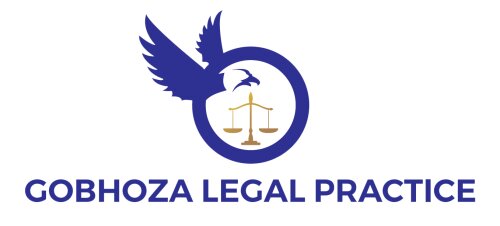Best Corporate & Commercial Lawyers in Botswana
Share your needs with us, get contacted by law firms.
Free. Takes 2 min.
Or refine your search by selecting a city:
List of the best lawyers in Botswana
About Corporate & Commercial Law in Botswana
Corporate and commercial law in Botswana regulates how businesses and companies are created, managed, dissolved, and operated. This legal area includes everything from the registration of businesses and company structuring to commercial contracts, mergers and acquisitions, insolvency, and compliance requirements. The purpose of corporate and commercial law is to provide a legal framework that promotes fair business practices, protects investors and stakeholders, and encourages a thriving business environment. Botswana has a strong reputation in Africa for stable governance, a reliable legal system, and investor-friendly policies.
Why You May Need a Lawyer
There are many situations where you might require legal help with corporate and commercial matters in Botswana, including:
- Starting a new business or incorporating a company
- Drafting, reviewing, or negotiating contracts or agreements
- Handling mergers, acquisitions, or joint ventures
- Resolving disputes between shareholders or directors
- Navigating regulatory compliance and licensing
- Dealing with insolvency or restructuring
- Protecting intellectual property rights relating to your business
- Obtaining legal opinions required for investments or financing
Even for experienced businesspeople, the legal requirements involved in these areas can be complex and time-consuming. Engaging a corporate and commercial lawyer can help safeguard your interests, ensure compliance, and resolve disputes efficiently.
Local Laws Overview
Corporate and commercial law in Botswana is mainly governed by statutes such as the Companies Act, the Trade and Liquor Act, the Industrial Property Act, and various regulations enacted by the Companies and Intellectual Property Authority (CIPA) and the Botswana Unified Revenue Service (BURS). Key areas include:
- Company Formation: All companies must be registered with CIPA. There are several types of companies, including private companies, public companies, and non-profit associations.
- Corporate Governance: The Companies Act outlines requirements for directors, company secretaries, shareholders meetings, annual filings, and the keeping of statutory registers. There are disclosure and transparency obligations as well.
- Commercial Transactions: Sales of goods and services, agency relationships, and commercial leases are regulated by both contract law principles and specific legislation.
- Foreign Investment: Botswana encourages foreign investment, but some sectors have restrictions or licensing requirements. Some industries are reserved for citizens or require joint ventures with local entities.
- Mergers and Acquisitions: These transactions often require approval from regulatory authorities, and compliance with competition laws is essential.
- Insolvency: Insolvency and business rescue processes are available under the law, and specific steps must be followed for fair treatment of creditors and restructuring.
Every business must also comply with employment laws, tax laws, and industry-specific regulations.
Frequently Asked Questions
What is required to register a company in Botswana?
To register a company, you need to apply through CIPA with details about the company name, directors, shareholders, registered office, and constitution. Fees and compliance with naming guidelines apply.
Can foreigners own companies in Botswana?
Yes, foreigners can own companies, but some sectors are reserved for citizens and others may require local participation or special licenses.
What are the main types of companies in Botswana?
Common types include private companies, public companies, and companies limited by guarantee (non-profits). Each type has specific requirements regarding ownership, governance, and reporting.
Are annual returns mandatory for companies?
Yes, all registered companies must file annual returns with CIPA and keep their company information up to date.
How are business disputes resolved in Botswana?
Most business disputes are resolved through the courts, but alternative dispute resolution methods such as arbitration and mediation are also commonly used.
What contracts should my business have?
Essential contracts usually include shareholder agreements, employment contracts, supplier contracts, lease agreements, and customer terms and conditions.
How do I protect my business's intellectual property?
You can apply for patents, trademarks, or copyrights through CIPA. Legal advice is advised to select the appropriate protection and process.
What licenses or permits might I need?
Depending on your business activities, you may require industry-specific permits, trading licenses from the local authority, or sectoral approvals from regulatory bodies.
What are my tax obligations as a company?
Companies must register with BURS and comply with tax laws, including corporate income tax, VAT, and withholding taxes. Regular filings and payments are required.
Can I restructure my business or change its form?
Yes, it is possible to restructure or convert your company, merge with others, or change shareholding, but you must follow the Companies Act requirements and notify CIPA and other authorities as required.
Additional Resources
- Companies and Intellectual Property Authority (CIPA): Responsible for company registration and intellectual property matters.
- Botswana Unified Revenue Service (BURS): Handles tax registration, payments, and compliance for businesses.
- Ministry of Investment, Trade and Industry: Provides business information, investment opportunities, and regulatory guidance.
- Botswana Investment and Trade Centre (BITC): Supports investors and provides resources on starting and running a business in Botswana.
- Legal practitioners and law firms specializing in corporate and commercial law.
- Public libraries or the Botswana Law Reports for further reading on statutes and recent case law.
Next Steps
If you need legal assistance in the corporate and commercial field in Botswana, consider the following steps:
- Assess your needs and gather relevant documents such as company registration forms, contracts, or correspondence.
- Research and identify law firms or legal practitioners with experience in corporate and commercial matters in Botswana.
- Arrange a consultation to discuss your situation, ask about costs and timelines, and clarify your next steps.
- Follow the legal advice given, keep accurate records, and ensure compliance with all statutory obligations and filing requirements.
- If needed, access resources or support from relevant governmental authorities or business support organizations.
Seeking qualified legal guidance at an early stage can save time, minimize risks, and help your business operate smoothly in Botswana's dynamic commercial environment.
Lawzana helps you find the best lawyers and law firms in Botswana through a curated and pre-screened list of qualified legal professionals. Our platform offers rankings and detailed profiles of attorneys and law firms, allowing you to compare based on practice areas, including Corporate & Commercial, experience, and client feedback.
Each profile includes a description of the firm's areas of practice, client reviews, team members and partners, year of establishment, spoken languages, office locations, contact information, social media presence, and any published articles or resources. Most firms on our platform speak English and are experienced in both local and international legal matters.
Get a quote from top-rated law firms in Botswana — quickly, securely, and without unnecessary hassle.
Disclaimer:
The information provided on this page is for general informational purposes only and does not constitute legal advice. While we strive to ensure the accuracy and relevance of the content, legal information may change over time, and interpretations of the law can vary. You should always consult with a qualified legal professional for advice specific to your situation.
We disclaim all liability for actions taken or not taken based on the content of this page. If you believe any information is incorrect or outdated, please contact us, and we will review and update it where appropriate.
Browse corporate & commercial law firms by service in Botswana
Botswana Attorneys in related practice areas.
Browse corporate & commercial law firms by city in Botswana
Refine your search by selecting a city.















